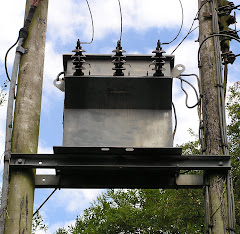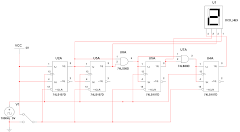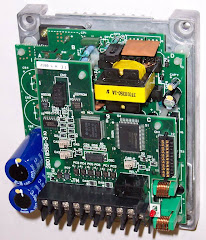Computer engineering
The neutrality of this article is disputed.Please see the discussion on the talk page.(January 2008)Please do not remove this message until the dispute is resolved.
The examples and perspective in this article or section may not represent a worldwide view of the subject.Please improve this article or discuss the issue on the talk page.
This documentation is in need of attention from an expert on the subject.
WikiProject Computer science or the Computer science Portal may be able to help recruit one.
If a more appropriate WikiProject or portal exists, please adjust this template accordingly.(April 2008)
This documentation is in need of attention from an expert on the subject.
WikiProject Technology or the Technology Portal may be able to help recruit one.
If a more appropriate WikiProject or portal exists, please adjust this template accordingly.(April 2008)
This article needs additional citations for verification.Please help improve this article by adding reliable references. Unsourced material may be challenged and removed. (March 2008)
This article may require cleanup to meet Wikipedia's quality standards.Please improve this article if you can. (January 2008)
Please help improve this article or section by expanding it.Further information might be found on the talk page or at requests for expansion. (February 2008)
It has been suggested that this article or section be merged with Computer Science and Engineering. (Discuss)
This article may have too many tags to meet Wikipedia's quality standards.Please remove some tags and improve this article if you can. (April 2008)
Computer engineering (or Computer Systems Engineering) encompasses broad areas of both electrical engineering and computer science[1][citation needed]. Computer engineers are electrical engineers that have additional training in the areas of software design and hardware-software integration. [2] In turn, they focus less on power electronics and physics[citation needed]. Some areas computer engineers are involved in are ASIC design, FPGA development, firmware development, software development, hardware-(firmware/software) integration, circuit design, and system-level design and integration.[3][citation needed]
Contents
1 Academic discipline
2 List of Universities
3 See also
4 References
5 External links
Academic discipline
The first accredited computer engineering degree program in the United States was established at Case Western Reserve University in 1971 by Jimmy Prater; as of 2004 October there were 170 ABET-accredited computer engineering programs in the U.S.[4]
Due to increasing job requirements for engineers that can design and manage all forms of computer systems used in industry, some tertiary institutions around the world offer a bachelor's degree generally called "computer engineering".[citation needed][dubious – discuss] Both computer engineering and electronic engineering programs include analog and digital circuit design in their curricula. As with most engineering disciplines, having a sound knowledge of mathematics and sciences is necessary for computer engineers.
In many institutions, computer engineering students are allowed to choose areas of in-depth study in their junior and senior year, as the full breadth of knowledge used in the design and application of computers is well beyond the scope of an undergraduate degree. The joint IEEE/ACM Curriculum Guidelines for Undergraduate Degree Programs in Computer Engineering defines the core knowledge areas of computer engineering as[5][citation needed]:
Algorithms
Computer architecture and organization
Circuits and signals
Database systems
Digital logic
Digital signal processing
Electronics
Embedded systems
Human-computer interaction
Operating systems
Programming fundamentals
Social and Professional issues
Software engineering
VLSI design and fabrication
Computer Networking
Distributed Systems
Advanced Database systems
The breadth of disciplines studied in computer engineering is not limited to the above subjects but can include any subject found in engineering[dubious – discuss].
List of Universities
Please help improve this article or section by expanding it.Further information might be found on the talk page or at requests for expansion. (April 2008)
United Kingdom:
Glamorgan University
Canada:
Université Laval
Japan:
United States of America:
Germany:
Republic of China:
South Korea:
India:
See also
Association for Computing Machinery
Electrical engineering
List of electrical engineers
Engineer
Information technology
Institute of Electrical and Electronics Engineers
Computer
Computer science
Computer-aided software engineering
References
^ IEEE Computer Society; ACM (December ????). Computer Engineering 2004: Curriculum Guidelines for Undergraduate Degree Programs in Computer Engineering, pg. iii. Retrieved on 2006-04-21. “Computer engineering has traditionally been viewed as a combination of both computer science (CS) and electrical engineering (EE).”
^ Try Engineering (Sponsored by the IEEE). Computer Engineering. Retrieved on 2007-12-01., "The work of a computer engineer is grounded in the hardware -- from circuits to architecture -- but also focuses on operating systems and software. Computer engineers must understand logic design, microprocessor system design, computer architecture, computer interfacing, and continually focus on system requirements and design. It is primarily software engineers who focus on creating the software systems used by individuals and businesses, but computer engineers may also design and develop some software applications."
^ Trinity College Dublin. What is Computer Engineering. Retrieved on 2006-04-21., "Computer engineers need not only to understand how computer systems themselves work, but also how they integrate into the larger picture. Consider the car. A modern car contains many separate computer systems for controlling such things as the engine timing, the brakes and the air bags. To be able to design and implement such a car, the computer engineer needs a broad theoretical understanding of all these various subsystems & how they interact."
^ IEEE Computer Society; ACM (December 2004). Computer Engineering 2004: Curriculum Guidelines for Undergraduate Degree Programs in Computer Engineering, pg. 5. Retrieved on 2006-04-21. “In the United States, the first computer engineering program accredited by ABET (formerly the Accreditation Board for Engineering and Technology) was at Case Western Reserve University in 1971. As of October 2004, ABET has accredited over 170 computer engineering or similarly named programs.”
^ IEEE Computer Society; ACM (December 2004). Computer Engineering 2004: Curriculum Guidelines for Undergraduate Degree Programs in Computer Engineering, pg. 12. Retrieved on 2006-04-21.
External links
Computer Engineering Conference Calendar
[show]
v • d • e
Major fields of technology
Applied science
Artificial intelligence · Ceramic engineering · Computing technology · Electronics · Energy · Energy storage · Engineering physics · Environmental technology · Fisheries science · Materials science and engineering · Microtechnology · Nanotechnology · Nuclear technology · Optics · Zoography
Information
Communication · Graphics · Music technology · Speech recognition · Visual technology
Industry
Construction · Financial engineering · Manufacturing · Machinery · Mining · Business informatics
Military
Ammunition · Bombs · Guns · Military technology and equipment · Naval engineering
Domestic
Educational technology · Domestic appliances · Domestic technology · Food technology
Engineering
Aerospace · Agricultural · Architectural · Audio · Automotive · Biological · Biochemical · Biomedical · Broadcast · Ceramic · Chemical · Civil · Computer · Construction · Cryogenic · Electrical · Electronic · Environmental · Food · Industrial · Materials · Mechanical · Mechatronics · Metallurgical · Mining · Naval · Nuclear · Optical · Petroleum · Software · Structural · Systems · Textile · Tissue · Transport
Health and safety
Biomedical engineering · Bioinformatics · Biotechnology · Cheminformatics · Fire protection engineering · Health technologies · Nutrition · Pharmaceuticals · Safety engineering · Sanitary engineering
Transport
Aerospace · Aerospace engineering · Automotive engineering · Marine engineering · Motor vehicles · Space technology
[show]
v • d • e
Academic degrees
Associate's degree (U.S.) · Foundation degree (U.K. except Scotland) · Bachelor's degree · Master's degree · Diplom · Magister · DEA ·
Licentiate · Specialist degree · Engineer's degree · Professional degree · Doctoral degree
Monday, April 21, 2008
Subscribe to:
Post Comments (Atom)





No comments:
Post a Comment